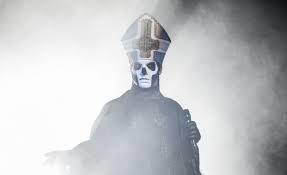On change, souls, the past and the future - Adam Shatz in LRB:
'On 1 June I saw a group of young people ritually renounce their white privilege in a ceremony led by a black activist. They seemed unaware that such gestures amount to little: it is oppressive conditions that produce racism, rather than the reverse. As Barbara Jeanne Fields has written, ‘People are more readily perceived as inferior by nature when they are already seen as oppressed.’ The cleansing of white souls doesn’t mean much without radical change to America’s political and economic structures.
It is easy to mock such spectacles of white contrition, which appear naive to the point of narcissism (a ‘guilty eroticism’, in Baldwin’s words), or to regret the absence of a cohesive political ideology and programme. The protesters offer an inchoate mix of Marxism, anti-colonialism, Black Power rhetoric, intersectional feminism, radical self-care and (this is America, after all) appeals to Jesus and other prophets. But this is a time of action, and the protesters are working out their ideas, and their plans, on the streets and without charismatic leaders of the sort who shaped the civil rights struggles of the 1950s and 1960s (an initial strength that could, as in the Arab revolts, turn into a liability). They deserve credit for grasping something that eluded their elders, especially the liberal advocates of ‘humanitarian’ interventions in the Middle East: that America’s human rights agenda should begin at home, and that efforts to export democratic principles scarcely observed in our own cities amount to moral evasion. It is in large part thanks to their persistence that Derek Chauvin has been charged with second-degree murder (he was initially charged with third-degree murder), and that his three fellow officers were also finally charged, on 2 June. Their actions even compelled the ever reticent Barack Obama to respond, in a speech that was striking for its lack of eloquence – or urgency. His cheerful praise for the demonstrators and moderate calls for police reform felt obsolete, the voice of a well-meaning father whose children have long since grown up.'
(...)
'It is this older war over police brutality and mass incarceration that has brought protesters onto the streets across the country. At the demonstration I attended in Brooklyn on 1 June there was no mention of Trump. The demonstrators understand that he’s merely a symptom of an old American disease – and that victory for Joe Biden is hardly a cure. They chanted ‘no justice, no peace’ and the names of Breonna Taylor, Eric Garner, George Floyd and others. The slogans I saw included: ‘I can’t breathe’ (Eric Garner’s last words, and now Floyd’s); ‘I’m not Black, but I will fight for you’; ‘Prayer to God to stop the virus of racism in America’; ‘White silence equals death’; and, of course, ‘Black lives matter.’
The protesters are mostly young, multiracial, the generation that came of age in the aftermath of the financial crisis, found themselves saddled with student debt and have spent the last two and a half months stewing indoors, prisoners of a pandemic that has eviscerated the economy. The uprisings in Watts, Detroit and Newark in the 196os broke out when overall unemployment was at a historic low, in communities that felt they’d been denied their share of the American dream; today’s protesters don’t even believe in the dream.'
Read the article here.
The desire to have your souls cleansed is understandable. And cleansing and ceremonies go well together, that is well-known to anybody with even the slightest idea of what religion is.
Germany after WW II had, and still has, Action Sühnezeichen, (Action Reconciliation Service for Peace), this organization came out of the Evangelical Church in Germany, and at least it was more than just a ceremony. Young people would go to countries that had fought Germany in World War II, or Israel, and would work there for a while.
If Biden is hardly the cure, what is? Activism? Have we given up on the basic elements of democracy, which is again understandable but also highly problematic. If enough people believe that change cannot be achieved by voting there is not much that stands between us and well meant and less well meant violence.
Of course change can be achieved through social activism, but Shatz admits that the results in the past are let's say half promising. He says that the protesters now are all that America has between us and 'and the ghosts of our ugly past.'
I do hope for America and Europe that a bit more stands between us and the ugly ghosts of the past.
